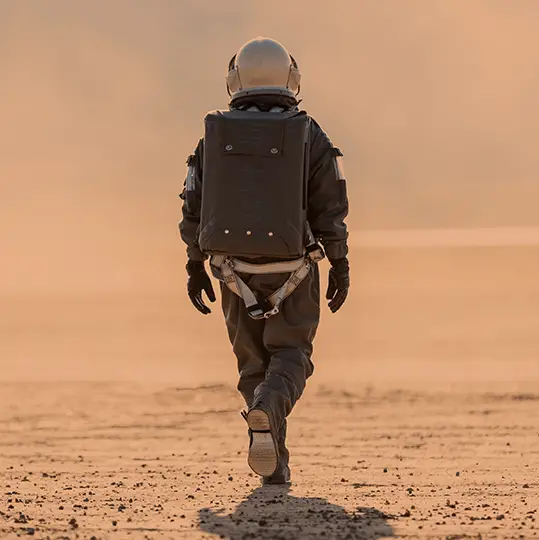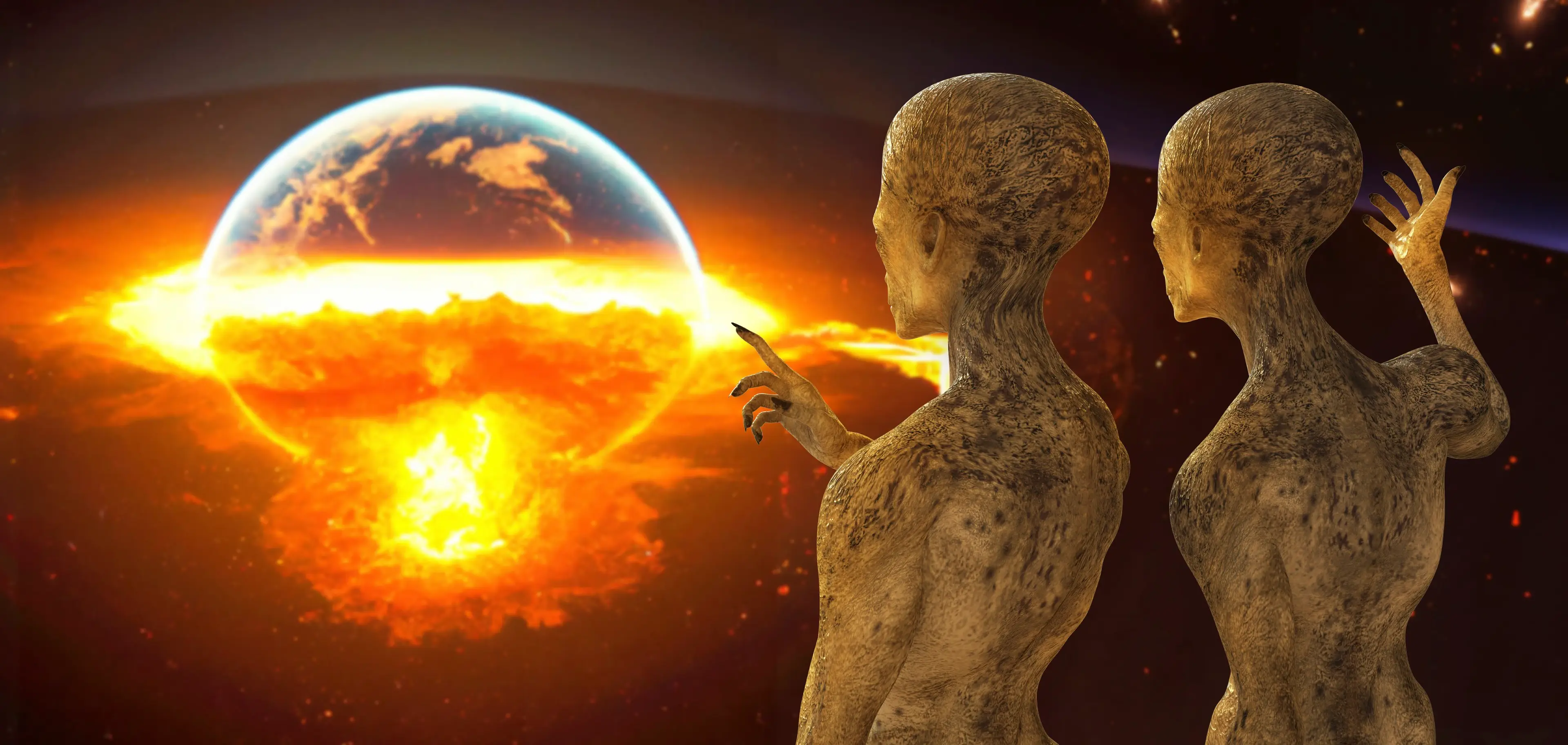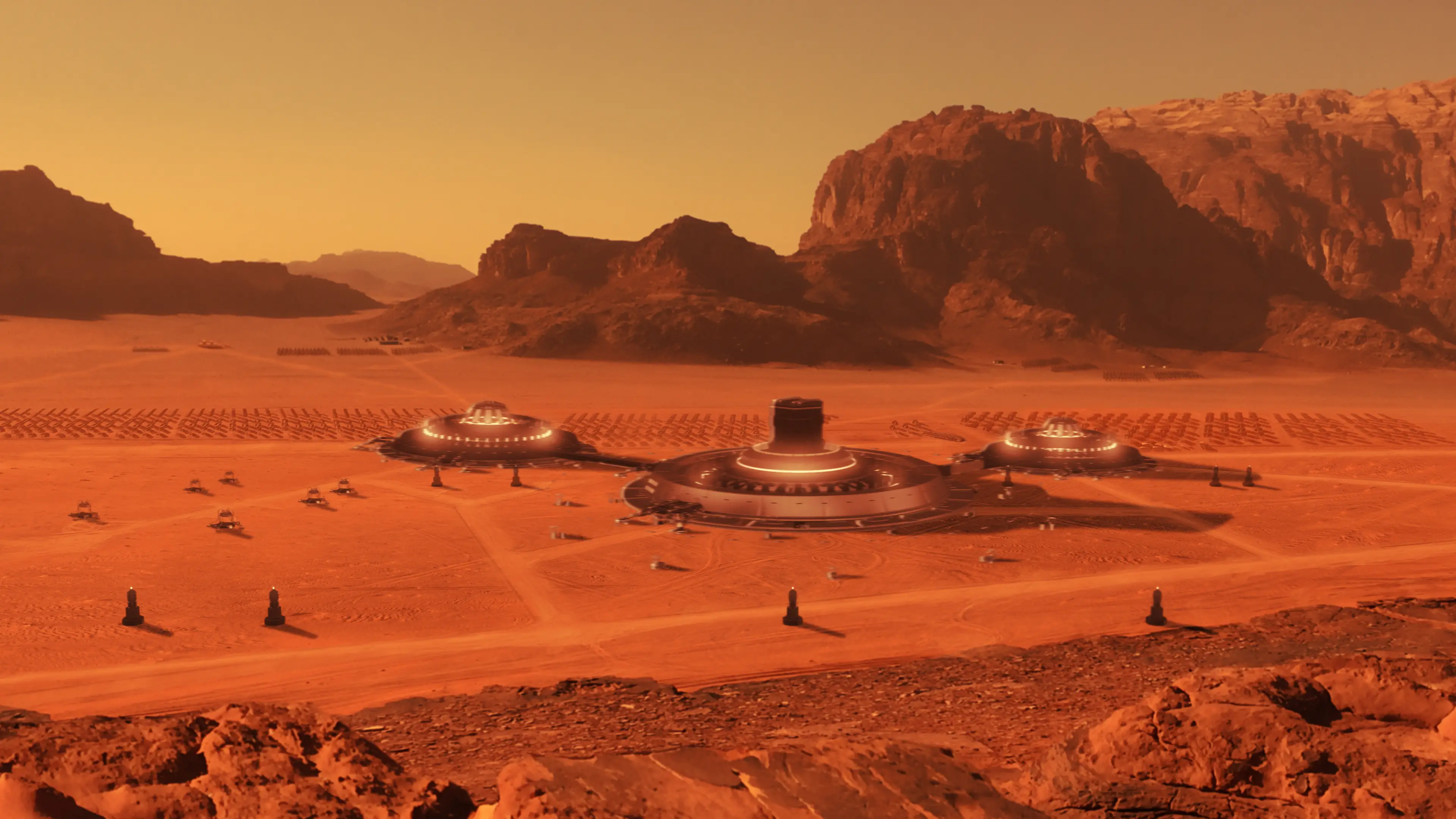
Many people think the Red Planet looks like our best hope for the future of the human race.
As Elon Musk sets his sights on Mars, there are questions about how we could realistically head there.
Despite discussions about sending humans to Mars having started way back in the 1940s, we're yet to get further than concept art and Hollywood movies like The Martian.
Still, NASA is planning on sending a manned mission there in the 2030s, with astronauts already living in simulations to try and replicate what life could be like on Mars.
Advert
Alongside Mars' harsh environment and worries of radiation, the likes of the human race itself contaminating the planet are all genuine concerns for why it might not be our next home.
If all of that wasn't enough to worry about, scientists have their thoughts on what living on the surface of Mars could do to the human body.

In his 2016 book, Future Humans: Inside the Science of Our Continuing Evolution, biologist Dr. Scott Solomon suggests that we'll undergo evolutionary changes if we settle down on Mars.
Sounding like what you might expect your typical movie representation of a Martian to look like, Solomon theorizes that the descendants of the planet's settlers could be mutated with green skin, weak vision, brittle bones, and reduced muscle strength.
Due to Mars being smaller than Earth, it has 38% less gravity, lacks a magnetic field, and an ozone layer. After being bombarded with cosmic rays and space radiation, Solomon claims our skin will be forced to adapt and potentially even turn into a brand-new tone we haven't seen before: "Perhaps in the face of this high radiation, we might evolve some new type of skin pigment to help us deal with that radiation...Maybe we get our own green men."

Using the example of cavefish (who unsurprisingly live in caves), he speculates that we'll become near-sighted due to living in small enclaves.
As for weaker muscles, the lower level of gravity will likely affect our bones. It's a similar issue that NASA is trying to tackle when it comes to the long-term effects of space travel on astronauts and the potential of developing Osteoporosis.
With the trip to Mars estimated to take up to 500 days, there are general fears that our bones will be jello before we even get there.
As the record for the longest consecutive time in space is held by Russian cosmonaut Valeri Polyakov for 437 days and 18 hours, flying to Mars already goes beyond that.
Solomon's musings likely won't matter for now, as Elon Musk has already warned first settlers might not even make it long enough to have kids.
Speaking during 2020's Humans to Mars, the SpaceX CEO said that it's not getting to Mars that's the problem, but building a self-sustaining city: "I want to emphasize that this is a very hard and dangerous, difficult thing, not for the faint of heart. Good chance you’ll die, it’s going to be tough going, but it will be pretty glorious if it works out."
Sorry, but no green ancestors for now.